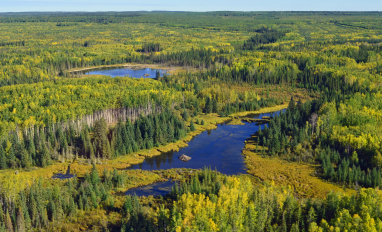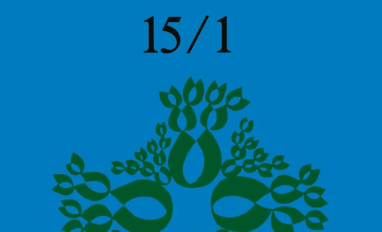Ressources de connaissances sur les terres humides
Ressource
Author(s)
Anke Günther
Alexandra Barthelmes
Vytas Huth
Hans Joosten
Gerald Jurasinski
Franziska Koebsch
John Couwenberg
Peatlands are strategic areas for climate change mitigation because of their matchless carbon stocks. Drained peatlands release this carbon to the atmosphere as carbon dioxide (CO2). Peatland...
Ressource
Abstract Gas through-flow by pressurised ventilation is well known in floating-leaved aquatic plants. The ventilation system operates via different structural features in different species: being...
Ressource
Nature-based climate solutions (NBCSs) are increasingly viewed as potentially significant contributors to combating climate change. They are of particular interest in countries such as Canada, which...
Ressource
Author(s)
Aino Korrensalo
Tomáš Hájek
Timo Vesala
Lauri Mehtätalo
Eeva‐Stiina Tuittila
Resource Date:
November
2016
Plant functional types (PFTs) are used to make generalizations in modeling how plants impact ecosystem functioning. In boreal bogs the number of plant species is small, but several PFTs are...
Ressource
Author(s)
Jos Verhoeven
Willem Koerselman
Boudewijn Beltman
Resource Date:
January
1988
Species-rich quaking fens have become rare in Western Europe. In Great Britain, Germany and The Netherlands they have been drained and turned into agricultural land. In The Netherlands small fens have...
Ressource
Resource Date:
March
2023
This resource is available on an external database and may require a paid subscription to access it. It is included on the CCLM to support our goal of capturing and sharing the breadth of all...
Ressource
Author(s)
Christine Kuntzemann
Ellen Whitman
Diana Stralberg
Marc-André Parisien
Dan Thompson
Scott Nielsen
Resource Date:
February
2023
Abstract In the boreal forests of North America, large wildfires often leave residual patches of unburned vegetation, termed fire refugia, which can affect post-fire ecosystem processes. Although...
Ressource
Author(s)
Vanessa Harriman
Ducks Unlimited Canada (DUC)
Where do ducks nest? Often in natural habitat—but sometimes in yards and cities! What should you do if a duck nests in your yard? And what should you expect? In this episode of Duck Doctors, DUC...
Ressource
Author(s)
Lauren Bortolotti
Ducks Unlimited Canada (DUC)
What's on the menu for wild ducks? Many different things, actually, depending on factors like species and the time of year. We receive many questions about what ducks eat, and if it's okay to feed...
Ressource
Author(s)
Matt Dyson
Ducks Unlimited Canada (DUC)
Have you noticed that not all ducks fly south during fall migration? We receive many questions about why some waterfowl stay in Canada and why they aren’t bothered by the cold. In this episode of Duck...




